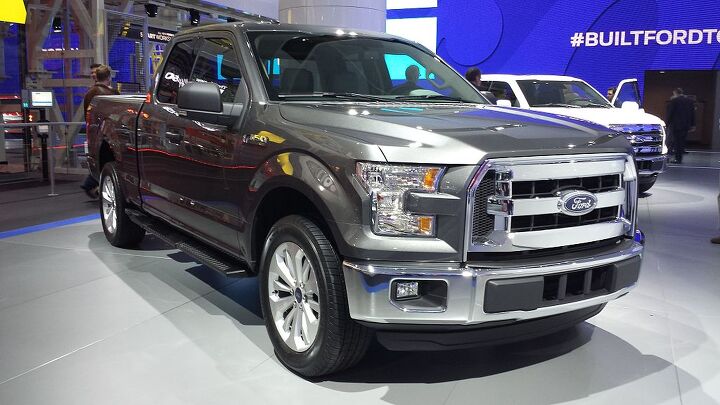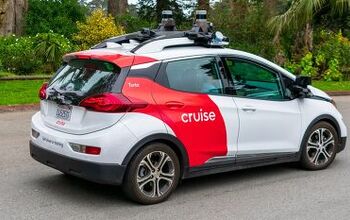IIHS: Not All Ford F-150s Are Built Just As Tough

Automotive News is reporting the Insurance Institute for Highway Safety will rate versions of Ford’s F-150 pickup with dramatically different safety ratings after re-testing versions of the pickup, which is a highly unusual move for the safety nonprofit.
The SuperCrew cab version of the F-150 earned the highest marks from the IIHS in its small overlap crash test, earning a Top Safety Pick rating. The re-tested SuperCab registers only a “marginal” rating in the same crash.
The difference, according to Automotive News, are tubular frames called “wheel blockers” installed on the SuperCrew, but missing from the SuperCab and Regular Cab models.
David Zuby, who is the chief research officer for the IIHS, said that the crash ratings between different cab versions could give buyers the wrong impression.
“(It) shortchanges buyers who might pick the extended cab thinking it offers the same protection in this type of crash as the crew cab,” Zuby told Automotive News.
A Ford spokesman said the company would look into adding additional safety measures into the Regular Cab and SuperCab versions of the F-150 for 2016.
The wheel blockers present on the SuperCrew, but missing on the SuperCab and Regular Cab, significantly varied the trucks’ performances on the small overlap crash test. In the follow-up test conducted on the SuperCab, the “intruding structure seriously compromised the driver’s survival space,” the IIHS told Automotive News.
The notoriously difficult small overlap test has been particularly difficult for automakers to solve. It’s unclear why Ford put the wheel blockers on the SuperCrew, but not the SuperCab and Regular Cab. Zuby offered a possible solution.
“I think automakers are trying to design the vehicles to offer the best protection for their customers,” he told Automotive News. “But occasionally, we do see evidence that maybe they are trying to get a good rating in a test, maybe without looking for a completely holistic solution.”
The IIHS tests only high-volume models. Historically the SuperCab and Regular Cab models only comprised 25 and 5 percent of sales respectively.

More by Aaron Cole
Latest Car Reviews
Read moreLatest Product Reviews
Read moreRecent Comments
- Luke42 When will they release a Gladiator 4xe?I don’t care what color it is, but I do care about being able to plug it in.
- Bd2 As I have posited here numerous times; the Hyundai Pony Coupe of 1974 was the most influential sports and, later on, supercar template. This Toyota is a prime example of Hyundai's primal influence upon the design industry. Just look at the years, 1976 > 1974, so the numbers bear Hyundai out and this Toyota is the copy.
- MaintenanceCosts Two of my four cars currently have tires that have remaining tread life but 2017 date codes. Time for a tire-stravaganza pretty soon.
- Lorenzo I'd actually buy another Ford, if they'd bring back the butternut-squash color. Well, they actually called it sea foam green, but some cars had more green than others, and my 1968 Mercury Montego MX was one of the more-yellow, less-green models. The police always wrote 'yellow' on the ticket.
- ToolGuy Some of my first cars were die-cast from pot-metal in 2 pieces: body-in-white plus chassis. I spray-painted some of them, the masking was a pain. The tires did burn realistically.


































Comments
Join the conversation
Smells like a band-aid added to deal with a unique crash issue on that version that happens to help small overlap as well. Otherwise why bother with the complexity of not having it on everything?
I'm not going to lie. I've watched a new F150 crumple like a Landwind tin can on the IIHS Youtube channel maybe a dozen times now. Do I want a new Mustang or Focus RS any less now? Nope. Considering how fast I'd hit whatever immovable object in either of those, they could be made of paper-mache for all I care.